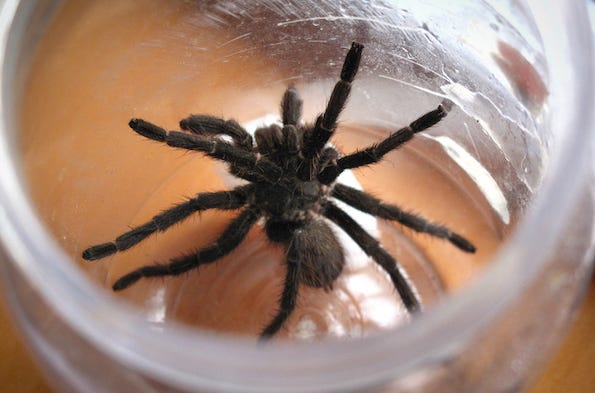
It seems you can find anything online these days, and that includes highly endangered and dangerous spiders.
New research from Cornell University has found that exotic or threatened insects and spiders can be easily purchased on sites like Amazon and eBay since there’s no adequate oversight.

John Losey, the study’s lead author and a professor of entomology at Cornell, said in a university release, “We surveyed the web to determine if there were species available for sale that are rare, threatened, or for which commerce is in some way regulated. As they get rarer and rarer, they become more and more valuable to collectors, and then the amount of collecting and sale, if not done sustainably, has greater impact on those species.”
Per Study Finds, for their study, researchers focused on insects and spiders focused on three lists: the Convention on International Trade of Endangered Species of Flora and Fauna (CITES) lists, the International Union for Conservation of Nature’s (IUCN) Red List of Threatened Species, and the U.S. Endangered Species List.
Through their research, they found 79 species listed online across the three lists, including seven species on the Red List, which names just the critically endangered insects.
Among some of the insects for sale included a Gooty sapphire tarantula for $232.50 and a Cyprus beetle for $1,100 on eBay. A rare and endangered butterfly, the Luzon peacock swallowtail, was found for sale on Amazon for around $110.
The most expensive insect was a birdwing butterfly species named Ornithoptera allotted, which is listed on CITES Appendix 2, for $3,850 on eBay!
The researchers also found species that provide ecological services, like ladybugs released for pest control and pollinators for sale.
If these insects are diseased in any way or have the wrong strain, they could impact larger wild populations and actually have harmful effects on the services they provide.
Senior co-author Paul Curtis, extension wildlife specialist in the Department of Natural Resources and the Environment, said “Hopefully, our findings will lead to better enforcement of the illegal online sale of rare insects and protect those species in the wild.”
LISTEN on the Audacy App
